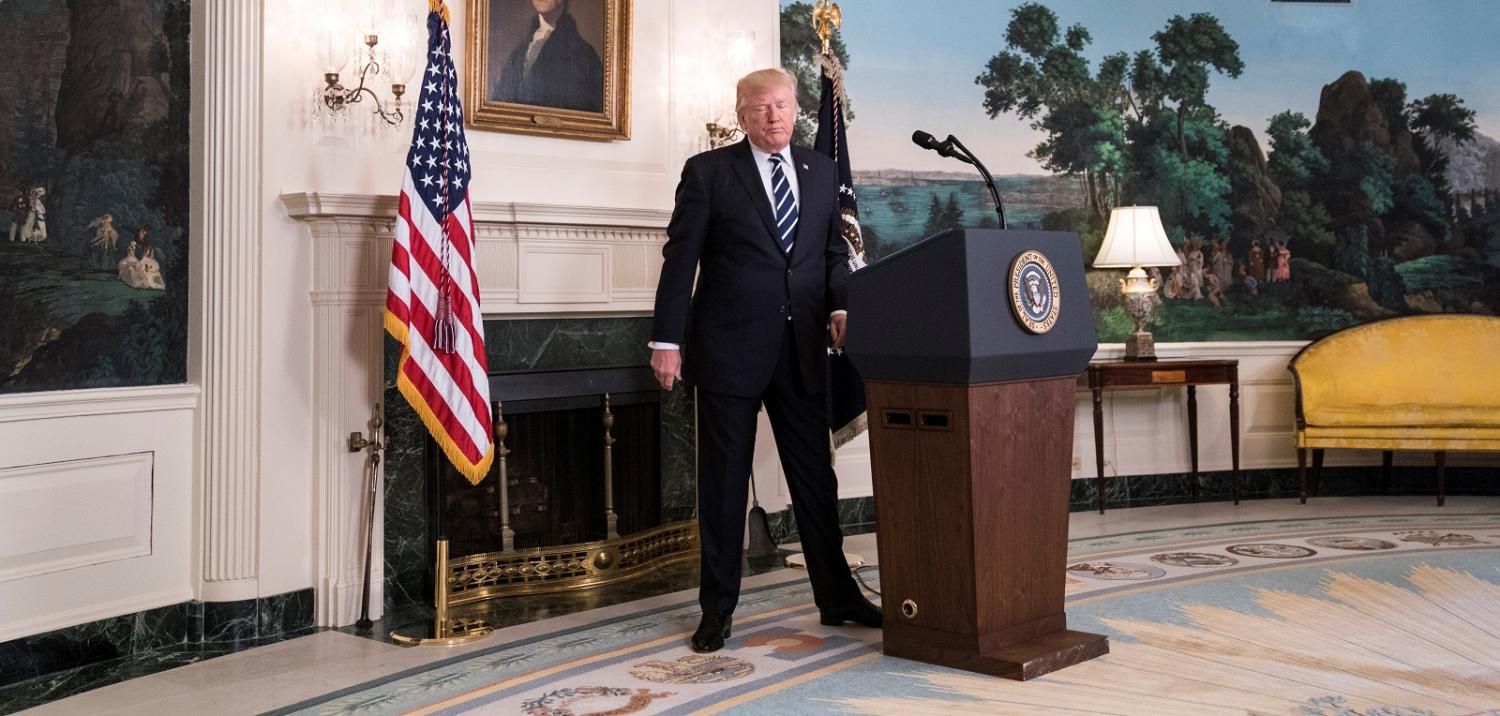This week US President Donald Trump could announce that Iran is not complying with the 2015 nuclear deal, despite a number of US allies and officials - including some inside the Trump administration - insisting that Iran has not breached the terms of the agreement.
Under the 2015 Iran Nuclear Agreement Review Act (INARA), the White House must certify continuing Iranian compliance to the deal every 90 days. This signals its continuing commitment to the deal between Iran and the P5+1 and gives Congress oversight over the US participation. The next deadline for certification is 15 October and the Trump administration has let it be known the President is considering announcing instead, as set out in the Act, that Iran is in material breach of the deal. If this occurs, Congress will have 60 days to decide whether or not to re-impose sanctions on Iran.
Decertification – the apparent first step in the Trump administration’s Iran policy – would severely undermine US efforts to curb and contain Iranian activities and influence in the region, and risks pushing Tehran to resume nuclear activities. It also risks putting the US on a direct path to yet another conflict in the Middle East.
Last month Trump paved the way for decertification by the 15 October deadline by stating that Iran was violating the ‘spirit’ of the deal. While this statement is arguable, given that Iran continues to abide by the rules of the deal, it's important to note that potential violations of the ‘spirit’ of the deal are not legitimate grounds for not certifying Iranian compliance. If Trump goes down the decertification path, however, his administration is expected to refrain from pushing Congress to adopt more sanctions against Iran, effectively wounding the deal but not scrapping it. This would allow the President to save face and appear strong, while not completely jeopardising the deal and risking Iranian nuclearisation. Trump believes this course of action would also allow the US to leverage potential additional sanctions to re-negotiate and, in his view, strengthen the 2015 agreement which he has repeatedly described as 'the worst deal ever'.
But this strategy is risky and counterproductive.
The 2015 deal addressed a major area of concern for the international community: Iran’s nuclear program and the progress it was making. But beyond this, there are other legitimate concerns over Iran’s behaviour. Iran’s missile program, for instance, continues to grow and progress, and Tehran hasn’t curbed its nefarious activities in the region. These can and must be addressed. But decertification would achieve the opposite; re-litigating an issue that was dealt with two years ago while not without giving the US any additional leverage over Iran and pitting the US against its allies.
US decertification would be a message to Iran that it doesn’t matter what Tehran does, how many compromises it makes and how well it sticks to them, the US will continue its tough talk and will always want more. It would prove the Iranian Supreme Leader was right when he said the US couldn’t be trusted. It would also suggest Iranian hardliners were right when they stated that the West, and the US in particular, is opposed to the Islamic Republic in principle. Decertification would also create a credibility issue for the US: what’s the point in making deals with it, if successive administrations are happy to throw them away? Most importantly, it would erase any desire or willingness for engagement and future compromise on Iran’s part.
Trump’s anti-Iran rhetoric during the campaign and since he’s been in office has already made things more difficult. There is no longer a direct channel of communication between Tehran and Washington to address minor crises. It also poses a barrier to engagement on other areas of concern.
The Trump administration should continue to certify the Iran nuclear agreement, unless there is an instance of actual Iranian non-compliance: the deal is done and it serves its purpose, why re-litigate it? In fact, the US should take the opposite course and seek to build on the deal, which has removed a barrier to dialogue, to address both other non-nuclear concerns that remain and areas where the two countries can work together. Addressing Iran’s growing missile arsenal for example, can’t be accomplished with tough talk, but rather, with added carrots: a potential ‘more-for-more’ deal. Addressing Iran’s regional forays can only be accomplished through dialogue to de-escalate and end regional conflicts. What’s more, the US and Iran share certain goals in the region, including the fight against Islamic State. Coordination of the type achieved under President Obama allows for successful offensives.
Without a nuclear deal, dialogue with Iran would be impossible. If the US administration certified the deal and continued to implement it, however, Iran would be willing to engage. Such dialogue would go much further to address areas of concern than more tough talk.

